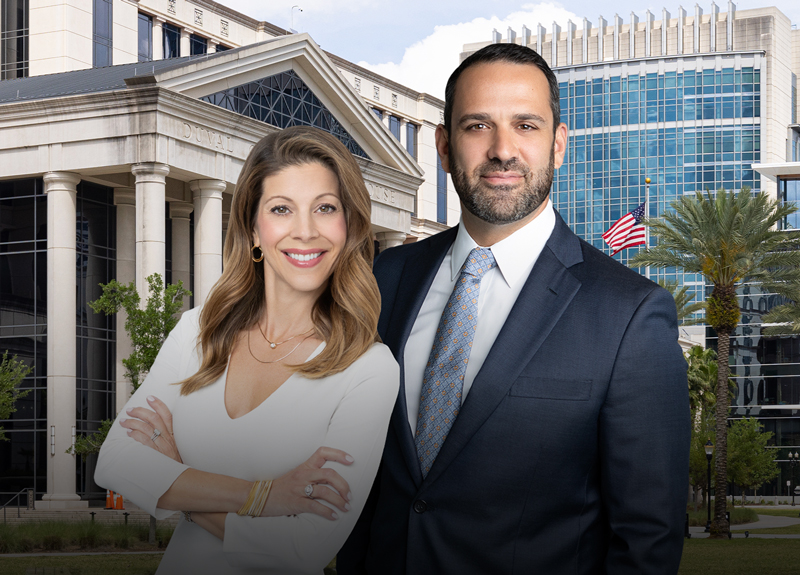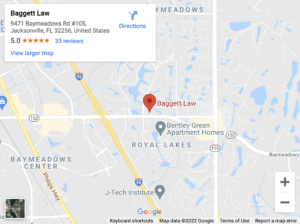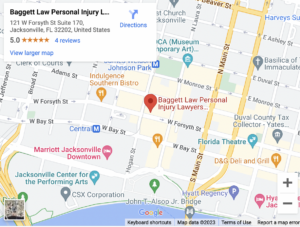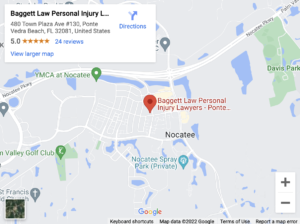
A broken bone might seem like a minor injury that heals in a couple of months. But some broken bones can cause serious complications, including arthritis, paralysis, and even death.
Fortunately, if you suffer a broken bone in a preventable accident, the negligent person and their insurer will need to cover the cost of your medical bills as well as your lost income.
Here are some facts about broken bones and the compensation you can recover for these injuries.
Your Skeleton
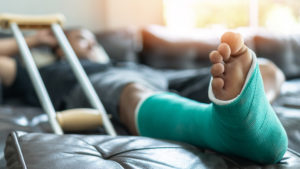
Your bones include all of the tissues of your body that have not been calcified. This definition excludes the muscles, tendons, ligaments, cartilage, and other “soft tissue.”
Your musculoskeletal system gives your body structure and strength. The bones provide a rigid frame to hold up your weight and provide leverage to your muscles. Ligaments hold the bones together. Muscles move the body and attach to the skeleton through tendons. Cartilage sits between bones to provide a smooth surface.
How Do Broken Bones Happen?
Bones break when a force overcomes the strength of the bone. This force can cause a few different kinds of fractures, including:
Non-Displaced Fractures
A non-displaced fracture happens when the bone breaks, but the broken ends remain aligned. These fractures usually only require a brace or cast to immobilize the bone while it heals.
Displaced Fractures
A displaced fracture happens when the bone breaks and the broken ends move out of alignment. A displaced fracture that breaks the skin is called a compound fracture.
Doctors usually need to operate to realign the broken ends. Once aligned, doctors may secure them in place with plates and screws. Alternatively, they may simply close the wound. They will support and protect the wound and the fracture with a brace or cast.
Comminuted Fractures
A comminuted fracture, also called a shattered bone, usually happens from a crushing injury. For example, you might experience a comminuted fracture if you get crushed under your motorcycle after getting hit in a motorcycle accident.
The bone breaks into at least three pieces. Doctors need to find the pieces and reconstruct the bone using screws and plates to repair it.
In some instances, doctors cannot find all of the pieces. For example, the pieces have suffered too much damage. They may graft a bone from elsewhere in your body or from a cadaver to rebuild the shattered bone.
If doctors cannot restore blood flow to the shattered bone due to the damage, they may amputate.
Stress Fractures
A stress fracture can result from certain repetitive motions. People who stand, walk, lift, or repeatedly carry objects during the day create tiny cracks in their bones. Normally, these cracks heal. But when you subject the bones to these stresses every day, they may crack.
Eventually, the cracks grow into a fracture that causes:
- Pain during activities
- Swelling
- Tenderness on the bone
Often, doctors need to take an X-ray to diagnose a stress fracture. This is because stress fractures result from overuse rather than trauma. As a result, you might not even realize you have a fracture until an X-ray shows the state of the bone.
What Complications Can Arise from Broken Bones?
Broken bones can have complications. These complications can cause serious health problems or even death. Some complications possible from bone fractures include:
Bleeding
You might not realize it, but bones have a blood supply. The bone marrow inside of the bones makes red blood cells, white blood cells, and platelets. Bones have an extensive network of blood vessels inside and around them to supply blood and pick up new cells.
When you fracture a bone, you could experience heavy bleeding. You may have large bruises near the fracture site. If you have a compound fracture, you could bleed profusely through the open wound.
The broken ends of the bone can also tear blood vessels in your muscles in a displaced fracture. While doctors can repair larger blood vessels, you might lose some circulation from damage to smaller blood vessels until the blood vessels regrow.
Infection
Infection happens when bacteria and other microorganisms get into your body. These microorganisms multiply. They also release toxic chemicals. Between the bacteria and your body’s reaction to them, you could experience a range of symptoms, including:
- Pain
- Fever
- Chills
- Redness
- Swelling
Compound fractures have the highest risk of infection due to the open wound. Doctors will often clean and disinfect the wound and administer antibiotics to reduce the risk of infection.
Nerve Damage
Just as they can tear blood vessels, the broken ends of the fractured bone can tear nerves. Torn nerves cannot carry nerve signals. As a result, you might experience:
- Loss of dexterity
- Pain
- Numbness
- Tingling
- Loss of sensitivity to hot or cold
Doctors can reconnect or graft a new segment of the nerve. But sometimes, nerve damage causes ongoing problems. When you experience these chronic symptoms in an extremity, you have peripheral neuropathy.
Blood Clots
When you fracture your bones, your body creates a clot over the broken ends. This clot protects the injury while the body rushes immune cells to battle infection and begin repairing the bone.
Occasionally, pieces of the clot break off. When they travel through the bloodstream, they can lodge in the heart, causing a heart attack. They can also lodge in the lungs, causing a pulmonary embolism. If they lodge in the blood vessels of your brain, they can cause a stroke. Any of these conditions can kill you.
What Compensation Can I Recover for Broken Bones?
If you suffer a broken bone due to someone else’s negligence, you can seek compensation. Negligence means that the other person failed to act with reasonable care under the circumstances. Suppose that a trucking company failed to secure a load. If you suffered broken bones when the load fell onto your car, you can pursue compensation for your truck accident.
The compensation you can seek will include your economic damages and your non-economic damages. These damages will cover your medical bills, lost income, and pain and suffering.
Most broken bones heal in six to eight weeks. You may suffer from some ongoing pain and weakness, so you may need physical therapy to recover from your injury. Your damages should cover all of your losses, from the cost of the medical treatment and therapy to the pain and inconvenience you suffer.
Contact a Jacksonville Personal Injury Lawyer for Help
Broken bones could entitle you to significant damages. To discuss the compensation you can seek for your broken bones, contact Baggett Law Personal Injury Lawyers to schedule a free consultation. Our Jacksonville personal injury lawyers are standing by.

